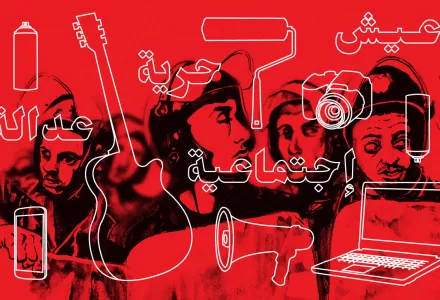A discussion with Leila Fadel, National Correspondent, NPR.
Presented by the American Repertory Theater (A.R.T.) at Harvard University and the Middle East Initiative at Harvard Kennedy School, the We Live in Cairo Act II Series invites audience members to remain at the theater following select performances for a curated discussion. The discussions are free and open to ticket-holders of any performance, subject to availability.
Written by brothers Daniel Lazour and Patrick Lazour, We Live in Cairo is inspired by the young Egyptians who took to the streets in 2011 to overthrow President Hosni Mubarak. It follows six revolutionary students armed with laptops and cameras, guitars, and spray cans from the jubilation of Cairo's Tahrir Square where the Egyptian revolution unfolded through the tumultuous years that followed.
For tickets and more information, please contact A.R.T. Ticket Services at 617.547.8300.
The discussion will follow the 2:00pm performance at A.R.T. (Loeb Drama Center, 64 Brattle St, Cambridge).
Speaker Bio
Leila Fadel is a national correspondent for NPR based in Las Vegas, covering issues of culture, diversity, and race. Most recently, she was NPR's international correspondent based in Cairo and covered the wave of revolts in the Middle East and their aftermaths in Libya, Tunisia, Egypt, and beyond. She was awarded the Lowell Thomas Award from the Overseas Press Club for her coverage of the 2013 coup in Egypt and the toll it took on the country and Egyptian families. In 2017 she earned a Gracie award for the story of a single mother in Tunisia whose two eldest daughters were brainwashed and joined ISIS. The mother was fighting to make sure it didn't happen to her younger girls. Before joining NPR, she covered the Middle East for The Washington Post as the Cairo Bureau Chief. Prior to her position as Cairo Bureau Chief for the Post, she covered the Iraq war for nearly five years with Knight Ridder, McClatchy Newspapers, and later The Washington Post. Her foreign coverage of the devastating human toll of the Iraq war earned her the George. R. Polk award in 2007. In 2016 she was the Council on Foreign Relations Edward R. Murrow fellow.

